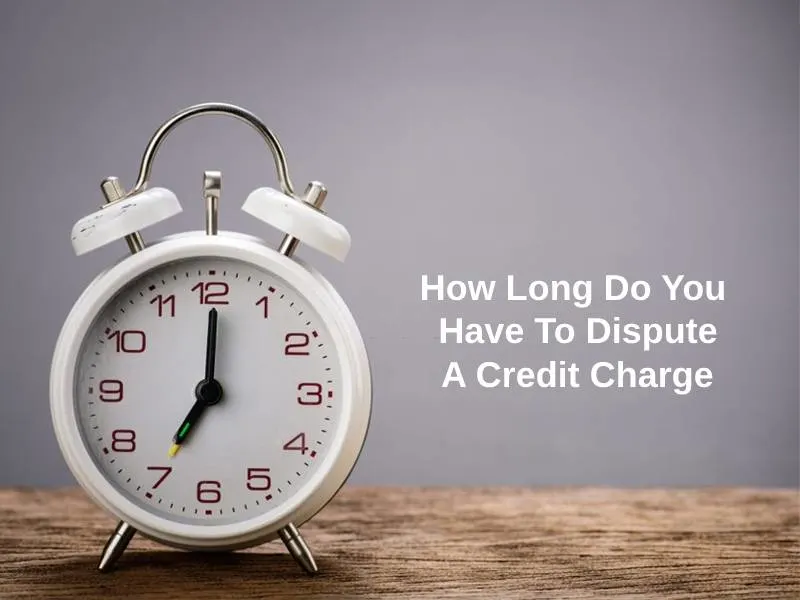Exact Answer: 60 Days
A credit charge can be defined as a charge, interest, or a kind of fine imposed on a credit transaction of goods or services. Credit charges are also applied by credit card companies to their customers who buy goods on credit. As credit cards provide instant money during emergencies, charges associated with it can be very high.
Credit charges can be of various types. Some of the credit charges are finance charges, late payment charges, over-limit charges, etc. However, at times, a credit card holder might get an erroneous charge upon his card which needs to be disputed. Thus, to help solve the dispute of wrong credit charges, one can dispute a credit charge with the credit card company within a stipulated period.

How Long Do You Have To Dispute A Credit Charge?
| Conditions | Duration |
| Duration to dispute a credit charge | 60 days |
| Duration to dispute a debit charge | 60 days |
It is the onus of the credit cardholder to constantly check and scrutinize one’s credit statement to ensure each transaction reflected therein is entirely accurate and no faulty charge is indicated in the statement. It is possible that while doing this, one might come across an unauthorized credit charge on one’s account.
Finding such false charges can cause one a big headache as these charges can be hefty in amount. However, when such inaccurate charges appear on one’s card, being no fault of the credit card holder, such a charge can be successfully disputed with the credit card company.
One can dispute with the credit card agency about an unexpected change within 60 days from the date the charge started reflected on one’s credit card statement. The dispute can be made for a charge that appears fraudulent or if it is related to a purchase transaction that did not turn out as expected or it can pertain to any other matter.
It is the credit card owner’s responsibility to bring this issue in front of the credit card agency and thus should be completed within 60 days from the cardholder’s end. Once this is done and the card issuer has acknowledged the disputed charge, the matter would get resolved in about 90 days i.e 3 months.
Why Does It Take So Long To Dispute A Credit Card Charge?
As per the Fair Credit Billing Act, 1974, it is mentioned in the law that one has a total of 60 days to report a disputed charge from the date on which the erroneous credit charge starts appearing. Hence, as soon as one notices a wrong charge on one’s credit statement, it is always advisable to dispute it as soon as possible to the credit card issuing company without any delay.
The credit cardholder can without any further formalities bring this issue to the credit card company’s notice. However, in certain cases, the credit card company may ask one to submit their dispute and the problem they are facing in writing.
Along with this written copy, proof that the charge is incorrect may also be required. Some documents that one can submit as proof for the incorrect charge are receipts, vouchers related to the said transaction, or any other valid document.
The card issuer would acknowledge your issue verify its validity and would rectify the disputed charge if it is truly their fault. Usually, the card issuer would send a written acknowledgment of the disputed charge within 30 days from the date of receiving the complaint of erroneous charge.
After evaluation of all details, the company would contact the credit card holder within 3 months and would intimate their decision regarding the said charge. If it is the fault of the credit card company, the charge would be removed and one would probably be getting a refund for the same.
Conclusion
As a credit cardholder, one should thoroughly check their credit card statement to ensure that they are accurate and depict only true and fair information. In case one notices an incorrect charge on their credit statements, it can be disputed within 60 days from the date it was accounted for in the relevant month’s statement.
As there is a window of only 2 months, it is necessary to check the statement right after one receives them. One should always carefully review whether all amounts are correctly recorded and only relevant charges are reflected.